Digital Signature Benefits
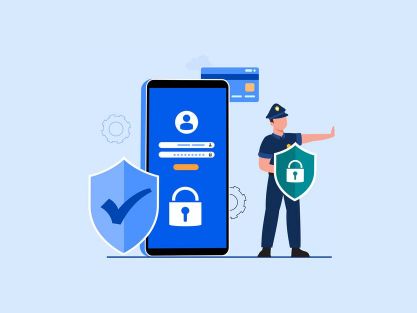
Added Security

Independent Verification

Global Acceptance and Legal Compliance
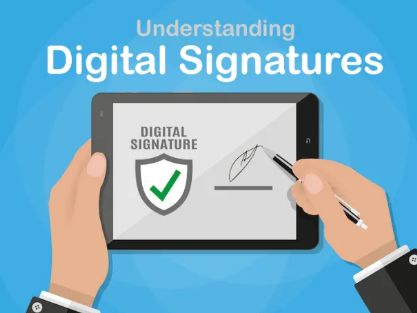
Long-Term Retention and Access

A secure digital key with encrypted information that helps verify the authenticity of messages and documents
Digital signatures are like electronic “fingerprints.” In the form of a coded message, the digital signature securely associates a signer with a document in a recorded transaction. Digital signatures use a standard, accepted format, called Public Key Infrastructure (PKI), to provide the highest levels of security and universal acceptance. They are a specific signature technology implementation of electronic signature (eSignature).
Digital signatures are like electronic “fingerprints.” In the form of a coded message, the digital signature securely associates a signer with a document in a recorded transaction. Digital signatures use a standard, accepted format, called Public Key Infrastructure (PKI), to provide the highest levels of security and universal acceptance. They are a specific signature technology implementation of electronic signature (eSignature).
Digital signatures are like electronic “fingerprints.” In the form of a coded message, the digital signature securely associates a signer with a document in a recorded transaction. Digital signatures use a standard, accepted format, called Public Key Infrastructure (PKI), to provide the highest levels of security and universal acceptance. They are a specific signature technology implementation of electronic signature (eSignature).
Digital signatures, like handwritten signatures, are unique to each signer. Digital signature solution providers, such as DocuSign, follow a specific protocol, called PKI. PKI requires the provider to use a mathematical algorithm to generate two long numbers, called keys. One key is public, and one key is private.
When a signer electronically signs a document, the signature is created using the signer’s private key, which is always securely kept by the signer. The mathematical algorithm acts as a cipher, creating data matching the signed document, called a hash, and encrypting that data. The resulting encrypted data is the digital signature. The signature is also marked with the time that the document was signed. If the document changes after signing, the digital signature is invalidated.
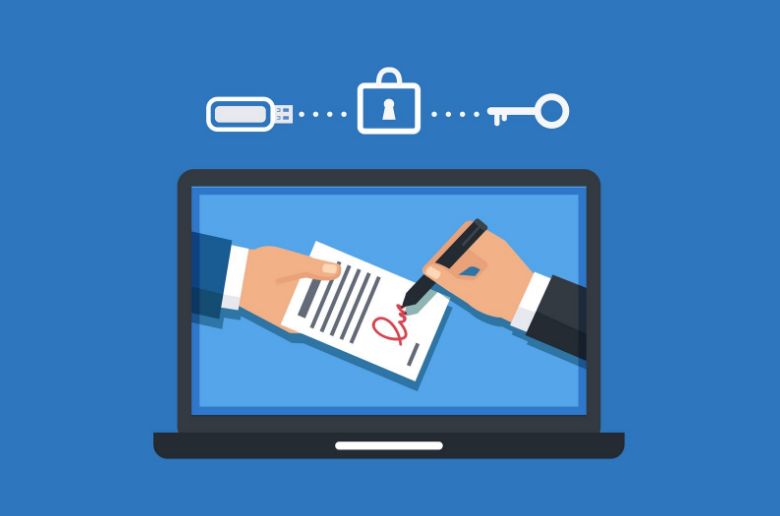
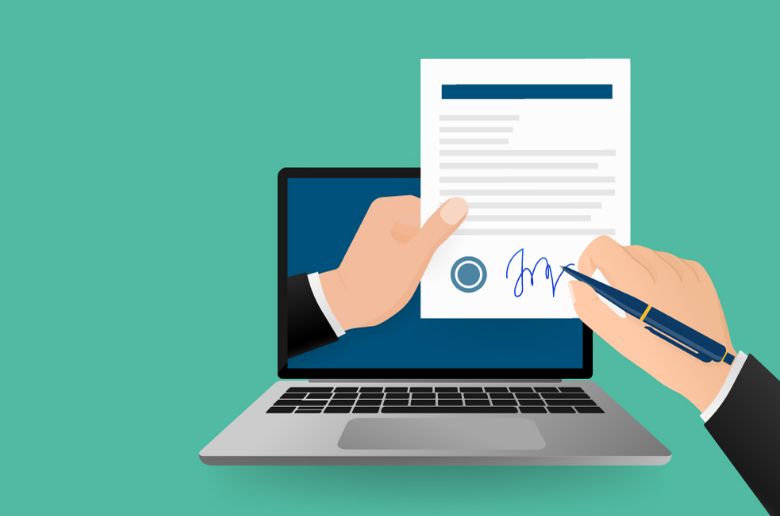
As an example, Jane signs an agreement to sell a timeshare using her private key. The buyer receives the document. The buyer who receives the document also receives a copy of Jane’s public key. If the public key can’t decrypt the signature (via the cipher from which the keys were created), it means the signature isn’t Jane’s or has been changed since it was signed. The signature is then considered invalid.
To protect the integrity of the signature, PKI requires that the keys be created, conducted, and saved in a secure manner, and often requires the services of a reliable Certificate Authority (CA). Digital signature providers, like DocuSign, meet PKI requirements for safe digital signing.
Digital signatures, like handwritten signatures, are unique to each signer. Digital signature solution providers, such as DocuSign, follow a specific protocol, called PKI. PKI requires the provider to use a mathematical algorithm to generate two long numbers, called keys. One key is public, and one key is private.
When a signer electronically signs a document, the signature is created using the signer’s private key, which is always securely kept by the signer. The mathematical algorithm acts as a cipher, creating data matching the signed document, called a hash, and encrypting that data. The resulting encrypted data is the digital signature. The signature is also marked with the time that the document was signed. If the document changes after signing, the digital signature is invalidated.


As an example, Jane signs an agreement to sell a timeshare using her private key. The buyer receives the document. The buyer who receives the document also receives a copy of Jane’s public key. If the public key can’t decrypt the signature (via the cipher from which the keys were created), it means the signature isn’t Jane’s or has been changed since it was signed. The signature is then considered invalid.
To protect the integrity of the signature, PKI requires that the keys be created, conducted, and saved in a secure manner, and often requires the services of a reliable Certificate Authority (CA). Digital signature providers, like DocuSign, meet PKI requirements for safe digital signing.

Digital signatures, like handwritten signatures, are unique to each signer. Digital signature solution providers, such as DocuSign, follow a specific protocol, called PKI. PKI requires the provider to use a mathematical algorithm to generate two long numbers, called keys. One key is public, and one key is private.
When a signer electronically signs a document, the signature is created using the signer’s private key, which is always securely kept by the signer. The mathematical algorithm acts as a cipher, creating data matching the signed document, called a hash, and encrypting that data. The resulting encrypted data is the digital signature. The signature is also marked with the time that the document was signed. If the document changes after signing, the digital signature is invalidated.

As an example, Jane signs an agreement to sell a timeshare using her private key. The buyer receives the document. The buyer who receives the document also receives a copy of Jane’s public key. If the public key can’t decrypt the signature (via the cipher from which the keys were created), it means the signature isn’t Jane’s or has been changed since it was signed. The signature is then considered invalid.
To protect the integrity of the signature, PKI requires that the keys be created, conducted, and saved in a secure manner, and often requires the services of a reliable Certificate Authority (CA). Digital signature providers, like DocuSign, meet PKI requirements for safe digital signing.

Nobody wants to have to go into crisis management mode when important paper documents are stolen, misplaced or destroyed due to a fire, flood or other unforeseen disaster. The fact is, these things happen – and prevention is always better than cure. Digital document management and storage eliminates the chances of physical records going missing or being destroyed.

Using digital signatures and finalizing contracts and agreements so much faster than expectations have always dictated shows clients your business has the latest technology in place and is serious about efficiency. For one of our clients, the fact that they used a digital signature and workflow solution turned out to be a differentiator when it came to them getting a deal.

There is without doubt increased awareness and a higher expectation for companies to be environmentally aware nowadays. Using digital signatures and supporting a paperless business model demonstrates that you as a company are aware of the impact using paper has on the environment, and willing to employ solutions to minimize damage.

There is nothing more time consuming – not to mention frustrating – than having to spend hours searching for physical documents that went through a lengthy manual signing, managing & storing process – and straight into a proverbial black hole. Digital Signatures turn hours – sometimes days or even weeks – into mere minutes by allowing you to quickly find the required documents, on a secure server, and then action them.

One of our recently acquired customers were pleasantly surprised to see how simple going digital and paperless was, and how quickly our solution was able to save them time and money by simplifying day-to-day business processes. “We initially thought the change to digital processes would complicate things and take so much time to implement, but it turns out it was simpler than any single manual process.

We love to hear feedback from our customers about their customers, because we understand how much value a customer holds for a company. While organization’s stand to benefit hugely from going paperless – in both monetary and time-saving terms – the customers they serve reap just as many rewards, including convenience, speed and efficiency. At the end of the day, a happy customer means a happy bottom line.
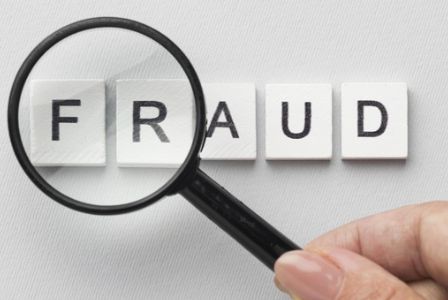
It’s no secret that any semi-skilled con artist can forge a physical signature. Digital signatures completely eliminate the risk of forgery, because they are backed by a unique digital identity, based on globally accepted Public Key Infrastructure standards. There is no higher level of security when it comes to signing a document.

One of the things we frequently get asked by customers, is whether digital signatures are legally valid across all parts of the world. The answer is yes. digital signatures were developed with both security and compliance at their core and are compliant for electronic transactions and trust services.

This is probably the most immediately raved about benefit see when companies deploy digital signatures. Apart from the obvious money-saving benefits that come with not having to print documents out, such as no more paper, ink, printers and maintenance.

Nobody wants to have to go into crisis management mode when important paper documents are stolen, misplaced or destroyed due to a fire, flood or other unforeseen disaster. The fact is, these things happen – and prevention is always better than cure. Digital document management and storage eliminates the chances of physical records going missing or being destroyed.

Using digital signatures and finalizing contracts and agreements so much faster than expectations have always dictated shows clients your business has the latest technology in place and is serious about efficiency. For one of our clients, the fact that they used a digital signature and workflow solution turned out to be a differentiator when it came to them getting a deal.

There is without doubt increased awareness and a higher expectation for companies to be environmentally aware nowadays. Using digital signatures and supporting a paperless business model demonstrates that you as a company are aware of the impact using paper has on the environment, and willing to employ solutions to minimize damage.

There is nothing more time consuming – not to mention frustrating – than having to spend hours searching for physical documents that went through a lengthy manual signing, managing & storing process – and straight into a proverbial black hole. Digital Signatures turn hours – sometimes days or even weeks – into mere minutes by allowing you to quickly find the required documents, on a secure server, and then action them.

One of our recently acquired customers were pleasantly surprised to see how simple going digital and paperless was, and how quickly our solution was able to save them time and money by simplifying day-to-day business processes. “We initially thought the change to digital processes would complicate things and take so much time to implement, but it turns out it was simpler than any single manual process.

We love to hear feedback from our customers about their customers, because we understand how much value a customer holds for a company. While organization’s stand to benefit hugely from going paperless – in both monetary and time-saving terms – the customers they serve reap just as many rewards, including convenience, speed and efficiency. At the end of the day, a happy customer means a happy bottom line.

It’s no secret that any semi-skilled con artist can forge a physical signature. Digital signatures completely eliminate the risk of forgery, because they are backed by a unique digital identity, based on globally accepted Public Key Infrastructure standards. There is no higher level of security when it comes to signing a document.

One of the things we frequently get asked by customers, is whether digital signatures are legally valid across all parts of the world. The answer is yes. digital signatures were developed with both security and compliance at their core and are compliant for electronic transactions and trust services.

This is probably the most immediately raved about benefit see when companies deploy digital signatures. Apart from the obvious money-saving benefits that come with not having to print documents out, such as no more paper, ink, printers and maintenance.

Nobody wants to have to go into crisis management mode when important paper documents are stolen, misplaced or destroyed due to a fire, flood or other unforeseen disaster. The fact is, these things happen – and prevention is always better than cure. Digital document management and storage eliminates the chances of physical records going missing or being destroyed.

Using digital signatures and finalizing contracts and agreements so much faster than expectations have always dictated shows clients your business has the latest technology in place and is serious about efficiency. For one of our clients, the fact that they used a digital signature and workflow solution turned out to be a differentiator when it came to them getting a deal.

There is without doubt increased awareness and a higher expectation for companies to be environmentally aware nowadays. Using digital signatures and supporting a paperless business model demonstrates that you as a company are aware of the impact using paper has on the environment, and willing to employ solutions to minimize damage.

There is nothing more time consuming – not to mention frustrating – than having to spend hours searching for physical documents that went through a lengthy manual signing, managing & storing process – and straight into a proverbial black hole. Digital Signatures turn hours – sometimes days or even weeks – into mere minutes by allowing you to quickly find the required documents, on a secure server, and then action them.

One of our recently acquired customers were pleasantly surprised to see how simple going digital and paperless was, and how quickly our solution was able to save them time and money by simplifying day-to-day business processes. “We initially thought the change to digital processes would complicate things and take so much time to implement, but it turns out it was simpler than any single manual process.

We love to hear feedback from our customers about their customers, because we understand how much value a customer holds for a company. While organization’s stand to benefit hugely from going paperless – in both monetary and time-saving terms – the customers they serve reap just as many rewards, including convenience, speed and efficiency. At the end of the day, a happy customer means a happy bottom line.

It’s no secret that any semi-skilled con artist can forge a physical signature. Digital signatures completely eliminate the risk of forgery, because they are backed by a unique digital identity, based on globally accepted Public Key Infrastructure standards. There is no higher level of security when it comes to signing a document.

One of the things we frequently get asked by customers, is whether digital signatures are legally valid across all parts of the world. The answer is yes. digital signatures were developed with both security and compliance at their core and are compliant for electronic transactions and trust services.

This is probably the most immediately raved about benefit see when companies deploy digital signatures. Apart from the obvious money-saving benefits that come with not having to print documents out, such as no more paper, ink, printers and maintenance.
















Q&A
A digital signature is a mathematical scheme for verifying the authenticity of digital messages or documents.
Q&A
A digital signature is a mathematical scheme for verifying the authenticity of digital messages or documents.
Q&A
A digital signature is a mathematical scheme for verifying the authenticity of digital messages or documents.
Copyright © 2020- 2021 Resemblesystems.com, All rights reserved.
Copyright © 2020- 2021 Resemblesystems.com, All rights reserved.
Copyright © 2020- 2021 Resemblesystems.com, All rights reserved.